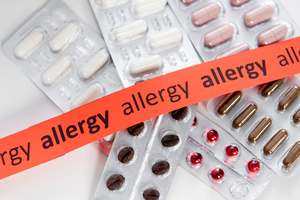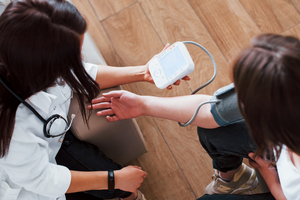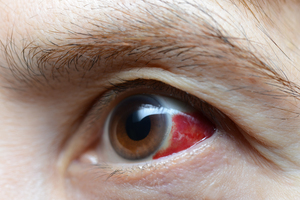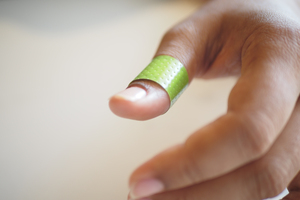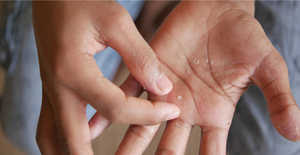COVID Testing
Types of COVID Testing
What are the types of COVID tests?
Nucleic acid amplification tests (NAATs) (or PCR tests) and antigen testing are the two primary categories of viral tests used to detect active COVID-19 infections. Depending on the situation, one or the other may be recommended. Additionally, COVID antibody tests are available to test for prior infection or vaccination.
COVID Antigen Tests
One of the most common types of COVID tests is a rapid antigen test. According to the U.S. Centers for Disease Control and Prevention (CDC), these tests have been offered for free through governmental mail-order programs and are available at low or no cost at many pharmacies throughout the country. A rapid antigen test checks for viral markers or particles (known as “antigens”) within a bodily fluid. This type of test can tell you if you are currently infected with COVID-19; however, these tests are less reliable than other tests, according to the CDC. During the test, a healthcare provider takes a sample from your nose or mouth and applies a reagent solution to the sample. You may also conduct this test on your own, using a home kit. Regardless of whether your test is positive or negative, you will know the results in under an hour. If your test is negative, the CDC notes that you should repeat it for 48 hours just to confirm your result.
COVID PCR Tests
Another type of COVID test is known as a NAAT (nucleic acid amplification) or PCR test. This also checks for an active COVID-19 infection—however, it is more sensitive than a rapid antigen test and can detect infections within the past 90 days, notes the CDC. If you have a rapid antigen test that is performed at a clinic and the result is negative, often a healthcare provider will likely send your sample for further testing with a PCR assessment for confirmation. A PCR test can detect small amounts of viral genetic material, so it can identify infections at their earliest or latest point when a rapid antigen test may not detect them. A PCR test can only be processed by a special technique in a lab setting, which means that these tests tend to be a bit more expensive than rapid antigen tests and they also have a longer turn-around time (up to 3 days), notes the CDC.
COVID Antibody Tests
You may have also heard about a COVID-19 antibody test. According to the CDC, this is typically a blood test. These tests can show whether you have had a COVID-19 infection in the past or have been vaccinated against COVID-19 based on measuring the levels of antibodies in your blood that were created against the SARS-CoV-2 virus. While this can give you information about whether you’ve previously had COVID-19, it does not specify a time frame in which you were infected.The CDC also notes that it has no bearing on your current COVID-19 status—you could have a positive antibody test from a former infection and also be actively infected with COVID-19, or you could have a positive antibody test and not be actively infected with the virus.
Who should get a COVID test?
As society has been living with COVID-19 in its midst for years now, many people have been infected with SARS-CoV-2 and some more than once. If you have natural immunity from being infected, or if you’ve been vaccinated and boosted, or both, you may not see the utility in getting a COVID-19 test. However, there are many reasons why you may still want to consider getting a COVID-19 test. According to the CDC, the following reasons should compel you to get tested for COVID-19:
- If you are having symptoms of COVID-19 (such as sore throat, fever, chills, cough, shortness of breath, congestion or runny nose, nausea or vomiting, diarrhea, a new loss of taste or smell, body aches, or a headache), you should immediately get tested.
- If you had a known exposure to COVID-19. If you’re not having any symptoms of the illness, the CDC notes that it is a good idea to wait at least five full days before you test yourself for COVID-19 because testing too early can give you a falsely negative result.
- If you work or live in a high-risk setting (such as a hospital, nursing home, or detention center), you may need COVID-19 tests to keep yourself and your community safe.
- If you are anticipating spending time with someone who has a higher risk of becoming severely ill from COVID-19 (like a very elderly person or someone who is on immunosuppressive medications), the CDC recommends getting tested for COVID to ensure that you do not unknowingly pass along the virus to them.
If you have a medical condition that predisposes you to get very ill with COVID-19, it is definitely a good idea to check for COVID-19 if you are having symptoms of the condition. A positive COVID-19 test can help you pursue therapy for COVID-19, such as oral or intravenous medications.
How to get a COVID test
There are several ways that you can get a COVID test. According to COVID.gov, you can purchase self-test kits over the counter at pharmacies, as well as online. Many health insurers are required to reimburse you for purchasing a certain number of these tests each month. You can also visit a healthcare provider and get tested for COVID in the context of that visit. A healthcare provider can test you for COVID and offer you counseling and treatment, depending on your results.
What to expect during a COVID test
You don’t need to do anything in advance to prepare for a COVID test. During a COVID test, you will likely be asked to stay very still so that a healthcare provider can insert a swab into your nostril and obtain a sample by rubbing the swab in a specific pattern for a certain amount of time. This may feel slightly uncomfortable—however, the discomfort does not typically persist after the swab is removed. After the sample is collected, you may know your results in under an hour (for antigen tests) or within a couple of days (for PCR tests or antibody tests).
Interpreting the results of a COVID test
Healthcare providers use the terms “positive” and “negative” to denote a COVID-19 test result. Testing positive for COVID-19 on a rapid antigen test means you likely have the illness. Testing positive for COVID-19 on a PCR test may mean you have the illness now (if you’re currently having COVID-19 symptoms), or it may mean that you had the illness within the past 90 days. Testing positive on an antibody test may mean that you have had a COVID-19 infection in the past or that you’ve had a vaccine that has successfully created antibodies that have been detected by the test.
What to do if a COVID test is positive
If a COVID test is positive, according to the CDC, it means that the virus was detected in your bodily fluids (likely in your nasal sample specimen). The CDC suggests that if you have a COVID-19 test that is positive, you take the following actions:
- Isolate yourself and use a high-quality mask to prevent the spread of your germs to others.
- Inform your recent contacts of your COVID-19 status, as they may have been exposed.
- Keep an eye on your symptoms and watch out for the warning signs of an emergency, such as difficulty breathing or chest pain.
- Consider checking in with a healthcare provider or community health center about treatment options that may be right for you.
Find COVID Testing near you
- Alabama
- Alaska
- Arizona
- Arkansas
- California
- Colorado
- Connecticut
- Delaware
- Florida
- Georgia
- Hawaii
- Idaho
- Illinois
- Indiana
- Iowa
- Kansas
- Kentucky
- Louisiana
- Maine
- Maryland
- Massachusetts
- Michigan
- Minnesota
- Mississippi
- Missouri
- Montana
- Nebraska
- Nevada
- New Hampshire
- New Jersey
- New Mexico
- New York
- North Carolina
- North Dakota
- Ohio
- Oklahoma
- Oregon
- Pennsylvania
- Rhode Island
- South Carolina
- South Dakota
- Tennessee
- Texas
- Utah
- Vermont
- Virginia
- Washington
- Washington DC
- West Virginia
- Wisconsin
- Wyoming
COVID Testing FAQs
What is a COVID test looking for?
The answer depends on the type of test. A rapid antigen test is looking for the presence of viral antigens in your sample. A PCR test is looking for viral DNA in your sample. An antibody test is looking for the presence of anti-COVID-19 antibodies made by your immune system.
What does a positive COVID test mean?
According to the CDC, a positive rapid antigen test means you likely have an active infection. A positive PCR test means you may be actively infected now or within the past 90 days. A positive antibody test means you may have had COVID at some point in the past or you have been vaccinated.
What kind of variant do I have if my COVID test is positive?
The CDC notes that currently, none of the common tests used for COVID testing currently distinguish between viral variants. Specialized labs analyze certain samples to detect viral variants and monitor community spread. The type of COVID-19 you have will likely be based on what is most prominent within your community at the time.
Where can I get a COVID test?
At Solv, we’re on a mission to help you find nearby, convenient care that fits your schedule and lifestyle. Our urgent care partners are all well prepared to screen you for conditions like COVID-19. Make sure to check out our urgent care near me tool to get started today.
Can I have a positive COVID test after getting vaccinated?
No. According to the CDC, you will not test positive on a viral test (rapid antigen or PCR) if you have had a vaccine or booster. You can have a positive antibody test if you’ve been vaccinated because your body has mounted an appropriate antibody defense.
Solv has strict sourcing guidelines and relies on peer-reviewed studies, academic research institutions, and medical associations. We avoid using tertiary references.
Everyday Healthcare, Simplified
Expert advice to help you live your best life

 LinkedIn
LinkedIn